SDG17
NCKU Signs MOC with Jülich Research Centre in Germany, Collaborating for Green Energy Scientific Advancement
National Cheng Kung University's Hierarchical Green-Energy Materials Research Center (HI-GEM) and Germany's Jülich Research Centre, specifically the Institute of Energy and Climate Research-IEK-1: Materials Synthesis and Processing (IEK-1), signed a memorandum of cooperation today (the 18th) at the Technology Building in NCKU's Tzu-Chiang Campus. The signing was represented by Professor Jow-Lay Huang, Director of HI-GEM, and Professor Olivier Guillon, Director of IEK-1, respectively. The collaboration aims to initiate joint research and development, academic exchanges, and talent cultivation to advance scientific development in the field of international green energy. Notable attendees at the signing ceremony included Dean Chyan-Deng Jan of the College of Engineering at NCKU, as well as Professor Hsisheng Teng and Professor Yuh-Lang Lee from the Department of Chemical Engineering, Professor Shih-kang Lin and Professor Kuan-Zong Fung from the Department of Materials Science and Engineering.
Dean Chyan-Deng Jan of the College of Engineering at NCKU first welcomed the distinguished guests from Forschungszentrum Jülich on behalf of NCKU. Dean Chan expressed that both NCKU HI-GEM and Germany's IEK-1 possess strong research capabilities in the field of green energy. He looks forward to leveraging the strengths of both parties to generate more research outcomes.
Professor Jow-Lay Huang, Director of NCKU HI-GEM, expressed his great honor in signing the cooperation agreement with Germany's Institute of Energy and Climate Research. He emphasized the significance of international academic research and talent exchange collaboration between the two parties, believing that through the accumulation of academic expertise and specialization in the field of green energy, they can learn, create, and research together to further practical applications.
Professor Olivier Guillon, Director of IEK-1, stated that cooperation between NCKU and Forschungszentrum Jülich had begun early and innovative collaborations have left a deep impression. He looks forward to jointly addressing various challenges and promoting the development of green energy technology through this signing.
Since 2016, NCKU has been collaborating with IEK-1, including a multinational collaboration team consisting of Professor Hsisheng Teng and Professor Shih-kang Lin, both members of HI-GEM from the Department of Chemical Engineering, and Professor Kuan-Zong Fung from the Department of Materials Science and Engineering. They have been working on the "Taiwan-Germany Battery Collaboration Research Program," jointly developing high-performance and high-safety novel lithium batteries. In 2022, Professor Lin Shih-Kang visited IEK-1 as a visiting professor.
NCKU's Cross-Disciplinary Center for Green Energy Materials Research is dedicated to research in green energy technology, focusing on developing novel green energy materials, cultivating high-level research talents, and actively collaborating with international research and development institutions to promote the development of Taiwan's green energy materials industry. Through interdisciplinary cooperation within and beyond the university, the center aims to drive industry transformation toward zero carbon emissions. The center's development is closely related to three Sustainable Development Goals (SDGs): SDG 7 - Affordable and Clean Energy, SDG 8 - Decent Work and Economic Growth, and SDG 9 - Industry, Innovation, and Infrastructure.
Forschungszentrum Jülich's Institute of Energy and Climate Research (IEK-1) is an internationally leading research center in green energy materials. Its research topics include high-efficiency energy conversion, collection and storage devices, and the expansion of applied scientific knowledge. Research areas encompass solid-state lithium-ion batteries and sodium-ion batteries, solid oxide fuel cells, solid oxide electrolysis cells, oxygen and hydrogen isolation membranes, thermal barrier coatings for gas turbines and the environment, and multiscale simulation and computation of materials.
This cooperation agreement will deepen the relationship between the two parties and continue to promote research and development in the field of green energy, especially in co-creation and collaboration in areas such as renewable energy technology, energy conversion, and storage systems. It will also facilitate exchanges between teaching and research personnel from both parties. Through the advantages of both parties in the field of energy storage battery research, it will jointly promote innovation and development in the scientific field.
Dean Chyan-Deng Jan of the College of Engineering at NCKU first welcomed the distinguished guests from Forschungszentrum Jülich on behalf of NCKU. Dean Chan expressed that both NCKU HI-GEM and Germany's IEK-1 possess strong research capabilities in the field of green energy. He looks forward to leveraging the strengths of both parties to generate more research outcomes.
Professor Jow-Lay Huang, Director of NCKU HI-GEM, expressed his great honor in signing the cooperation agreement with Germany's Institute of Energy and Climate Research. He emphasized the significance of international academic research and talent exchange collaboration between the two parties, believing that through the accumulation of academic expertise and specialization in the field of green energy, they can learn, create, and research together to further practical applications.
Professor Olivier Guillon, Director of IEK-1, stated that cooperation between NCKU and Forschungszentrum Jülich had begun early and innovative collaborations have left a deep impression. He looks forward to jointly addressing various challenges and promoting the development of green energy technology through this signing.
Since 2016, NCKU has been collaborating with IEK-1, including a multinational collaboration team consisting of Professor Hsisheng Teng and Professor Shih-kang Lin, both members of HI-GEM from the Department of Chemical Engineering, and Professor Kuan-Zong Fung from the Department of Materials Science and Engineering. They have been working on the "Taiwan-Germany Battery Collaboration Research Program," jointly developing high-performance and high-safety novel lithium batteries. In 2022, Professor Lin Shih-Kang visited IEK-1 as a visiting professor.
NCKU's Cross-Disciplinary Center for Green Energy Materials Research is dedicated to research in green energy technology, focusing on developing novel green energy materials, cultivating high-level research talents, and actively collaborating with international research and development institutions to promote the development of Taiwan's green energy materials industry. Through interdisciplinary cooperation within and beyond the university, the center aims to drive industry transformation toward zero carbon emissions. The center's development is closely related to three Sustainable Development Goals (SDGs): SDG 7 - Affordable and Clean Energy, SDG 8 - Decent Work and Economic Growth, and SDG 9 - Industry, Innovation, and Infrastructure.
Forschungszentrum Jülich's Institute of Energy and Climate Research (IEK-1) is an internationally leading research center in green energy materials. Its research topics include high-efficiency energy conversion, collection and storage devices, and the expansion of applied scientific knowledge. Research areas encompass solid-state lithium-ion batteries and sodium-ion batteries, solid oxide fuel cells, solid oxide electrolysis cells, oxygen and hydrogen isolation membranes, thermal barrier coatings for gas turbines and the environment, and multiscale simulation and computation of materials.
This cooperation agreement will deepen the relationship between the two parties and continue to promote research and development in the field of green energy, especially in co-creation and collaboration in areas such as renewable energy technology, energy conversion, and storage systems. It will also facilitate exchanges between teaching and research personnel from both parties. Through the advantages of both parties in the field of energy storage battery research, it will jointly promote innovation and development in the scientific field.
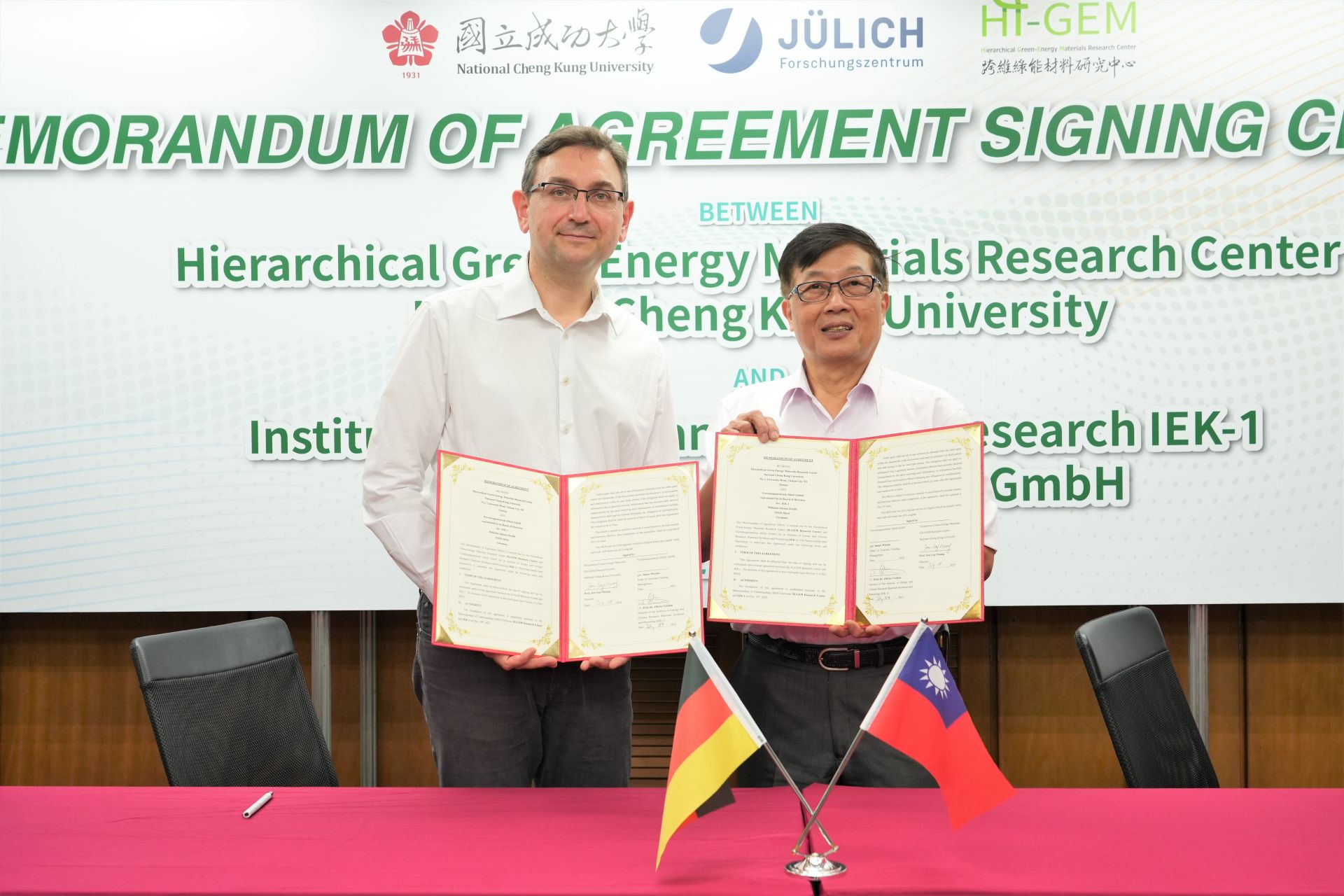
On the 18th, NCKU and Jülich Research Centre in Germany signed a memorandum of understanding for cooperation. Representing both sides were Professor Jow-Lay Huang (right), Director of NCKU's HI-GEM, and Professor Olivier Guillon (left), Director of IEK-1 at IEK-1 Centre.
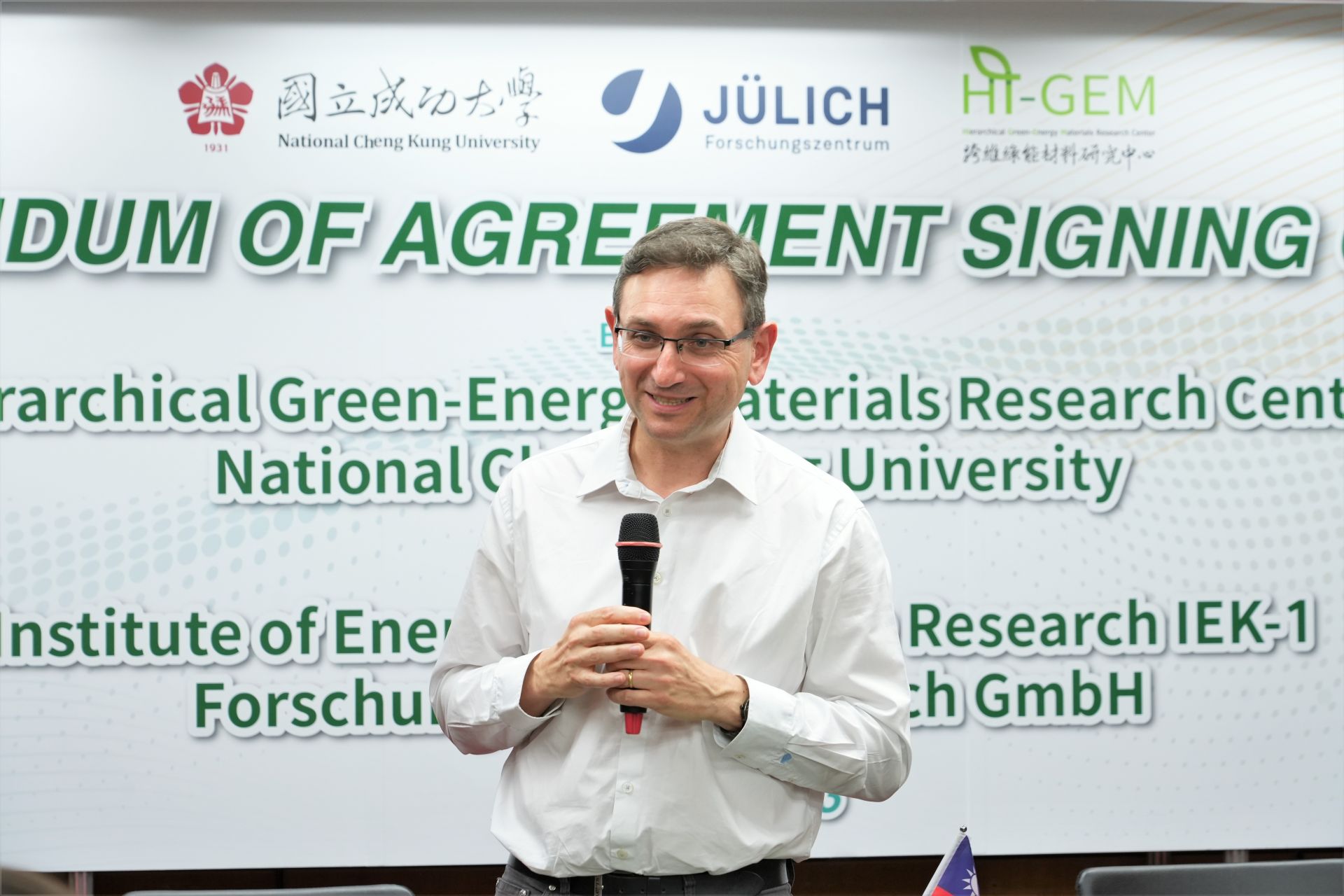
Professor Olivier Guillon, Director of the IEK-1 Center in Germany, looks forward to jointly addressing various challenges and promoting the development of green energy technology through this signing ceremony.
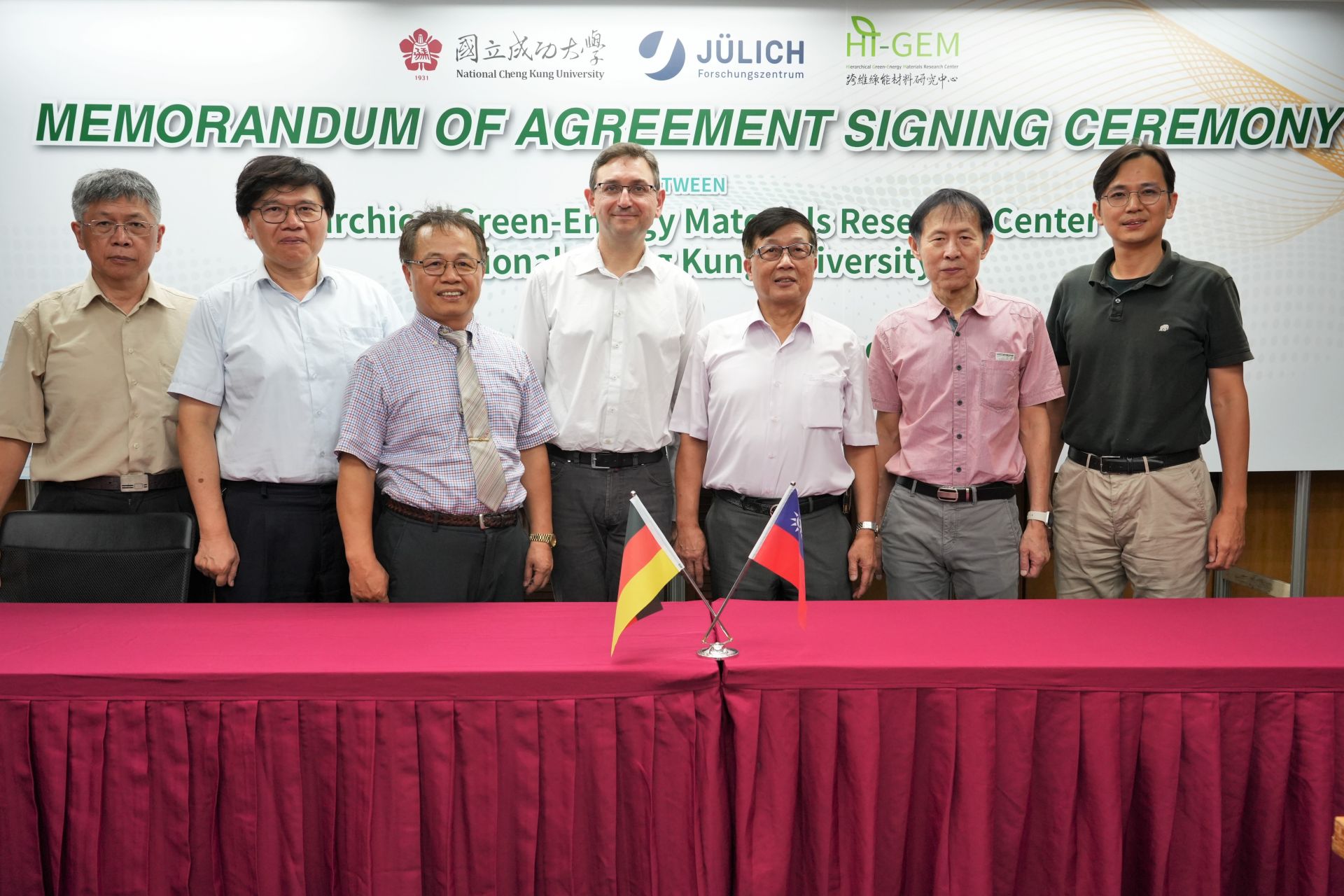
A group photo of the distinguished guests attending the signing ceremony.
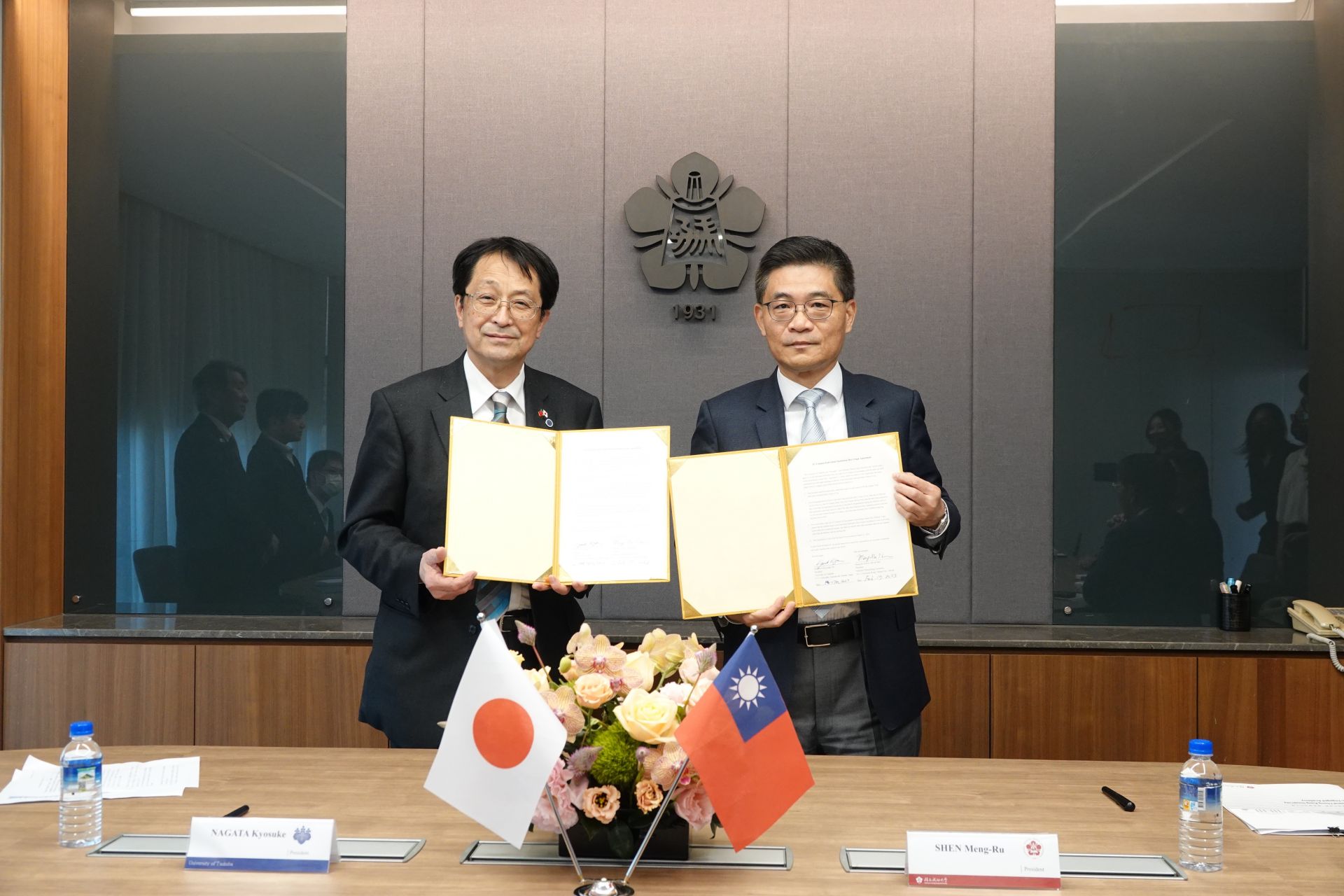
SDG17President of University of Tsukuba Visits NCKU and Signs JV Campus Program to Accelerate the Sharing of Higher Education Online
View more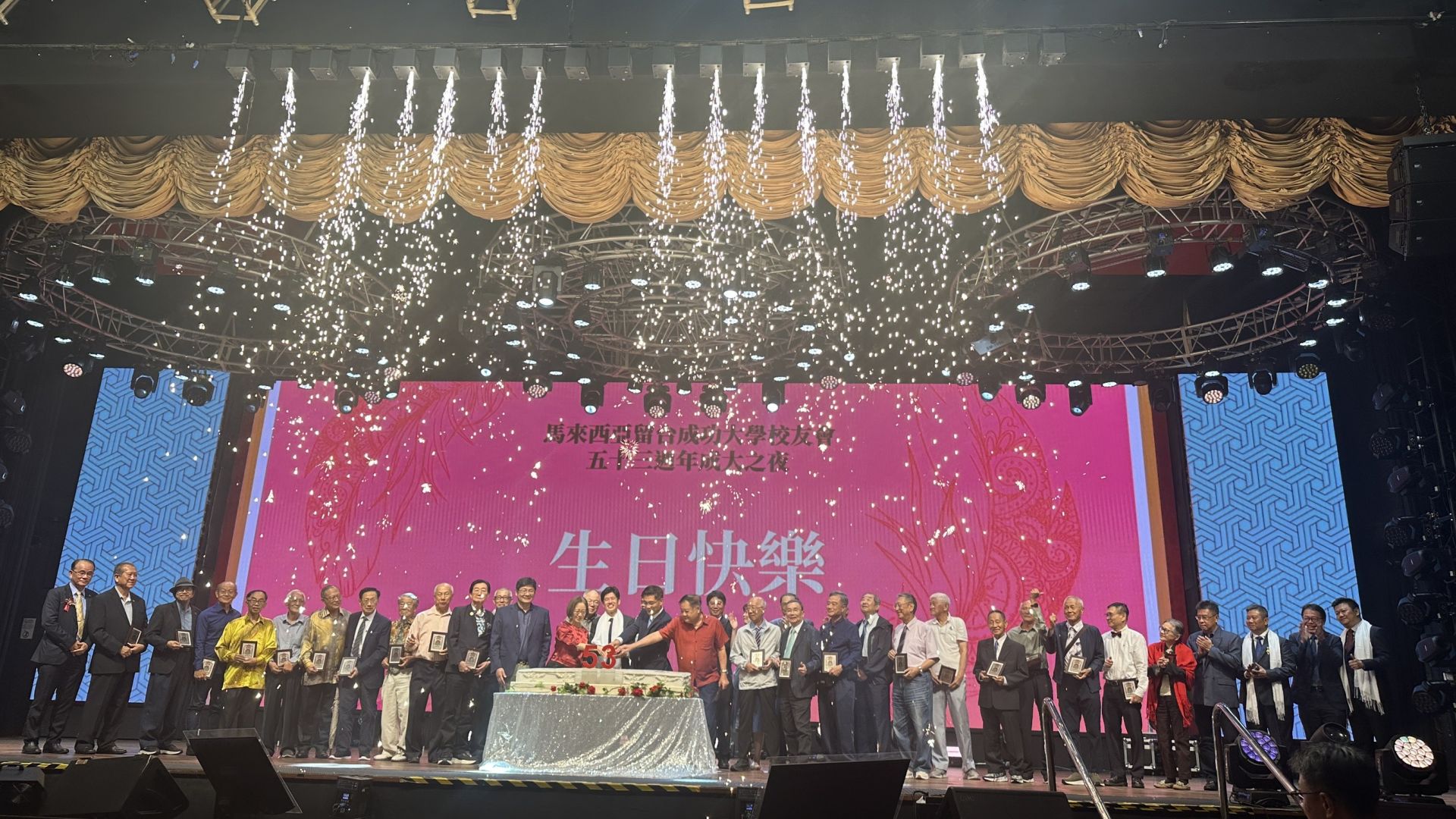
SDG17NCKU Strengthens Ties in Malaysia with Expanded Recruitment, Internships, and Alumni Engagement
View more



















